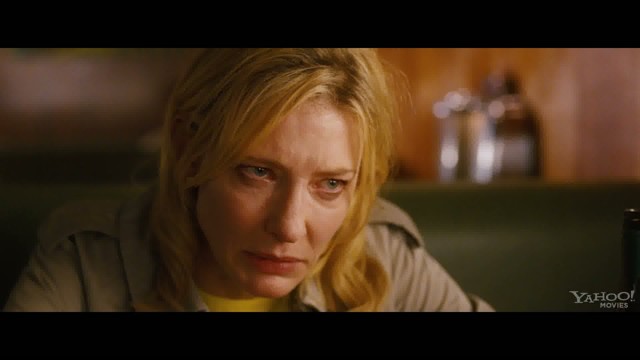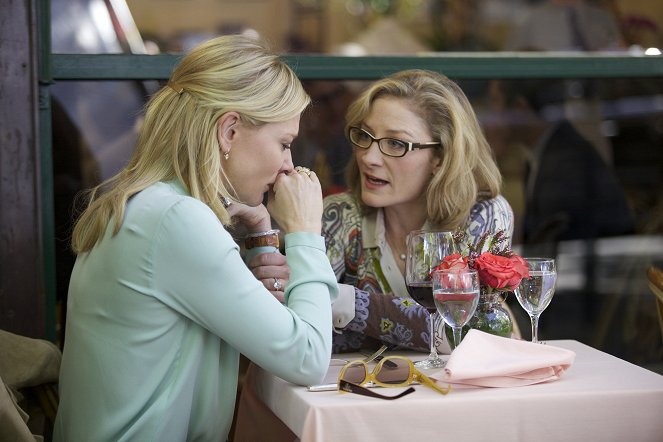Directed by:
Woody AllenScreenplay:
Woody AllenCinematography:
Javier AguirresarobeCast:
Cate Blanchett, Alec Baldwin, Sally Hawkins, Bobby Cannavale, Andrew Dice Clay, Peter Sarsgaard, Louis C.K., Alden Ehrenreich, Michael Stuhlbarg, Max Casella (more)VOD (3)
Plots(1)
After everything in her life falls to pieces, including her marriage to wealthy businessman Hal (Alec Baldwin), elegant New York socialite Jasmine (Cate Blanchett) moves into her sister Ginger's (Sally Hawkins) modest apartment in San Francisco to try to pull herself' back together again. Jasmine arrives in San Francisco in a fragile mental state, her head reeling from the cocktail of anti-depressants she's on. While still able to project her aristocratic bearing, Jasmine is emotionally precarious and lacks any practical ability to support herself. She disapproves of Ginger's boyfriend Chili (Bobby Cannavale), who she considers another 'loser' like Ginger's ex-husband Augie (Andrew Dice Clay). Ginger, recognizing but not fully understanding her sister's psychological instability, suggests that she pursue interior design, a career she correctly intuits that Jasmine won't feel is beneath her. In the meantime, Jasmine begrudgingly accepts work as the receptionist in a dentist's office, where she attracts the unwanted attentions of her boss, Dr. Flicker (Michael Stuhlbarg). Feeling that her sister might be right about her poor taste in men, Ginger starts seeing Al (Louis C.K.), a sound engineer whom she considers as a step up from Chili. Jasmine sees a potential lifeline when she meets Dwight (Peter Sarsgaard), a diplomat who is quickly smitten with her beauty, sophistication and style. (Warner Bros. Home Entertainment)
(more)Videos (3)
Reviews (11)
Like the first part of Kieslowski’s Three Colours trilogy, Allen’s tragicomic extension of A Streetcar Named Desire is in a blue mood. Blue, which for the emotionally fragile female protagonist is a symbol of tranquillity, is inserted into the film with frequent shots of the sea (which may be one of the reasons that Allen shot the film in San Francisco), and blue is also the colour of the moon in the song that Jasmine nostalgically recalls. The clear classification of the characters in Tennessee Williams’s play gives way to the destabilisation of all roles. With minor success, the two sisters seek their place among men. They are just as unclassifiable in terms of their nature as the film itself is terms of its genre as it oscillates between bitter comedy and pure tragedy. The insertion of current events through numerous flashbacks contribute to the “dual” structure of the narrative. Allen thoughtfully deals with the opposing “before” and “after” lifestyles and, more generally, the lifestyles of the rich and the poor (so the film could be credited with having a slight element of social criticism), and with the contradiction of Jasmine as passive prey and active woman/breadwinner. However, none of the positions and oppositions is permanent or impervious, so the protagonist does not cease to be dependent on others and does not definitively renounce her manners of a well-to-do lady upon arriving at her sister’s place. Jasmine’s sister once looked up to her; if Jasmine wants to survive in her new surroundings and conditions, she must now look up to her sister (both figuratively and literally, as Ginger dominates the shots on her own turf, while Jasmine is a passive beauty and a pampered queen in the world of luxury that her husband provided for her). The restrained camerawork (forget the neuroticism of Husbands and Wives; this film has a much smoother style) helps us to find our bearings in this shifting of forces and changing of roles, which are made authentic by the performances of the two lead actresses (the men are also superbly cast, but they certainly don’t play first fiddle, as they more or less there just to help move things along). Blanchett brings a theatrical loftiness to her portrayal of Jasmine, who literally cannot step out of here role, thus creating a sharp contrast with the more down-to-earth acting of the equally convincing Hawkins. Despite the film’s occasional formalistic rigidity irritating reluctance to give up on making jokes in places and the forcible insertion of themes involving crises, Blue Jasmine is, in comparison with Allen’s previous films, mostly just variously amusing puns, a decently complex study of character collapse and, after quite a long time, a Woody Allen film that the director spent enough time working on that I want to see it more than once. 75%
()
“What will happen when there’s no more Woody?” someone wrote in their review on a Woody Allen movie. I keep
asking myself that when I watch almost every single one of his movies. No one else can write such dialogue. No one else
can portray characters in this way and have them played by such aptly chosen actors who, for just a small paycheck,
enjoy every line. Human, intelligent, sensitive and conveyed with a light ironic touch, Blue Jasmine is also sad, making
you sympathize with the protagonist.
()
Woody Allen once again mixed a slightly more serious film for us, although he certainly didn't get rid of his humor, which only shines through in some places. When you watch the film, you realize what Woody is a master of. It's the dialogues. His scripts don't have to excel with a great story, which is true in this case, but they excel in the unbelievably believable characters. Cate Blanchett proves this, not only in the final scene, when it hits you that it's really her who dominates this film. An amazingly depressing experience that will leave you unsure about what to think.
()
Blue Jasmine is the most depressing Woody Allen film I've seen so far. The absolute success of this film lies in Cate Blanchett's breathtaking performance and a screenplay that sent chills down my spine and stiffened my blood. Jasmine doesn't have it easy in life, in fact her sister could talk about the misery of her life. Just when there seems to be a light at the end of the tunnel, she is suddenly overwhelmed by a pile of rocks that suffocates all hope. In short, a very well acted and written film that will stick in your mind
()
Woody Allen gets absolute recognition mainly for the fact that a somewhat overblown comedy was expected based on the premise and the trailer, but instead, he delivers an unexpected blow to the audience. Not to say that the occasionally typical dialogues don't appear, but the rest is for the audience one of Allen's most painful screenplays. In fact, Blue Jasmine cuts deep into the lifestyle, the syndromes of today's era, and relationship deadlocks, hitting the mark. The greatest credit for that goes to Cate Blanchett, who, under the Master's guidance, as expected, grows into a goddess.
()



Ads